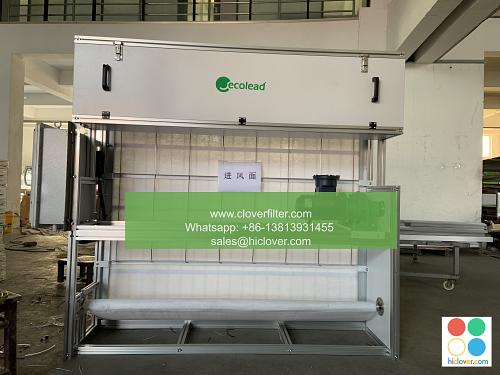The Effects of Air Filter Pressure Drop on System Energy Consumption

Air filter pressure drop is a critical factor that affects the energy consumption of various systems, including heating, ventilation, and air conditioning (HVAC) systems, industrial processes, and cleanroom applications. In this article, we will explore the relationship between air filter pressure drop and system energy consumption, and highlight the importance of selecting the right air filters for different application areas.
Understanding Air Filter Pressure Drop
Air filter pressure drop refers to the resistance to airflow caused by the air filter, which results in a decrease in air pressure across the filter. This pressure drop can be significant, and it can lead to an increase in energy consumption of the system. The pressure drop is affected by several factors, including the type of air filter, its size, and the airflow rate.
Factors Affecting Air Filter Pressure Drop
Several factors can affect the air filter pressure drop, including:
* Filter media: The type of filter media used can significantly affect the pressure drop. For example, high-efficiency particulate air (HEPA) filters have a higher pressure drop compared to prefilters.
* Filter size: Larger filters tend to have a lower pressure drop compared to smaller filters.
* Airflow rate: Higher airflow rates can result in a higher pressure drop.
Effects of Air Filter Pressure Drop on System Energy Consumption
The air filter pressure drop can have a significant impact on the energy consumption of a system. A higher pressure drop can lead to:
* Increased fan energy consumption: The fan needs to work harder to overcome the resistance caused by the air filter, resulting in higher energy consumption.
* Reduced system performance: A higher pressure drop can lead to reduced airflow rates, which can compromise the system’s performance.
* Increased maintenance costs: A higher pressure drop can lead to more frequent filter replacements, which can increase maintenance costs.
Application Areas
The effects of air filter pressure drop on system energy consumption are relevant to various application areas, including:
* HVAC systems: Air filter pressure drop can significantly affect the energy consumption of HVAC systems, which are used in commercial buildings, industrial facilities, and residential homes.
* Industrial processes: Air filter pressure drop can affect the energy consumption of industrial processes, such as chemical processing, pharmaceutical manufacturing, and food processing.
* Cleanroom applications: Air filter pressure drop is critical in cleanroom applications, where high-efficiency filters are used to maintain a controlled environment.
Strategies to Minimize Air Filter Pressure Drop
To minimize air filter pressure drop and reduce system energy consumption, several strategies can be employed, including:
* Selecting the right air filter: Choosing an air filter with a low pressure drop can help reduce energy consumption.
* Optimizing filter size: Selecting a filter size that is optimized for the airflow rate can help reduce pressure drop.
* Regular filter maintenance: Regularly cleaning or replacing air filters can help maintain a low pressure drop.
Conclusion
In conclusion, air filter pressure drop is a critical factor that affects the energy consumption of various systems. Understanding the factors that affect air filter pressure drop and implementing strategies to minimize it can help reduce system energy consumption and improve overall performance. By selecting the right air filters and optimizing filter size and maintenance, system operators can save energy, reduce costs, and improve the overall efficiency of their systems in various application areas, including HVAC systems, industrial processes, and cleanroom applications. It looks like you didn’t include a prompt. Please go ahead and give me something to work with, whether it’s a question, a topic, or a prompt for creative writing. I’m here to help!

